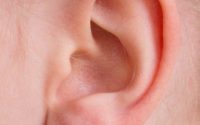Best Way to Relieve Migraines
Migraines can feel like a relentless storm in your head, leaving you searching for relief amid the chaos. If you’ve ever experienced that debilitating throbbing pain, sensitivity to light, or nausea, you’re not alone. Millions of people are affected by migraines every year. While finding effective ways to relieve them may seem daunting, understanding what triggers these episodes and exploring various remedies can empower you on your journey toward comfort.
From natural solutions to prescription medications, there’s hope for those seeking respite from this often-misunderstood condition. Let’s dive into some practical strategies that can help you reclaim your life from the grip of migraines. Whether you’re looking for immediate relief or long-term prevention tips, we’ll cover it all right here!
Understanding Migraines
Migraines are more than just bad headaches; they are a complex neurological condition. Characterized by intense, pulsating pain often located on one side of the head, migraines can last from hours to several days.
This type of headache is usually accompanied by other symptoms like nausea, vomiting, and sensitivity to light or sound. The severity can make daily activities nearly impossible.
Understanding the phases of a migraine is crucial. Many experience an aura—a warning sign that includes visual disturbances or tingling sensations—before the pain begins.
The exact cause remains elusive, but genetics and environmental factors play significant roles in triggering attacks. Stress levels, dietary choices, and hormonal fluctuations also contribute significantly to this condition’s onset.
Recognizing these elements helps in managing migraines effectively and tailoring relief strategies uniquely suited to individual needs.
Common Triggers for Migraines
Migraines can be unpredictable, often triggered by a variety of factors. Identifying these triggers is crucial for effective management.
Stress stands out as one of the most common culprits. Emotional tension and anxiety can pave the way for a migraine episode.
Diet also plays a significant role. Certain foods like aged cheeses, processed meats, and even chocolate may provoke attacks in sensitive individuals.
Environmental changes shouldn’t be overlooked either. Bright lights, strong smells, or sudden weather shifts can set off those painful sensations.
Hormonal fluctuations are another factor affecting many women. Menstrual cycles or hormonal medications might trigger migraines during specific times.
Sleep patterns matter too; both lack of sleep and oversleeping can lead to unwanted headaches.
Awareness of these triggers empowers you to make informed choices that could reduce the frequency and intensity of your migraines.
Natural Remedies for Migraine Relief
Natural remedies can be a gentle yet effective way to relieve migraines. Many individuals turn to herbs and supplements like feverfew and butterbur, which have shown promise in reducing migraine frequency.
Essential oils also offer soothing benefits. Peppermint oil may help alleviate tension when massaged onto the temples, while lavender can promote relaxation through aromatherapy.
Acupuncture is another alternative that some find beneficial. This ancient practice targets specific points on the body and may reduce both pain intensity and occurrence.
Hydration plays a crucial role as well. Drinking plenty of water keeps your body functioning optimally, potentially warding off dehydration-induced headaches.
Incorporating yoga or meditation into your routine can foster mindfulness and decrease stress levels—two significant triggers for migraines.
Over-the-Counter Medications for Migraines
Over-the-counter medications can be a quick and accessible solution for many individuals experiencing migraines. Common options include nonsteroidal anti-inflammatory drugs (NSAIDs) like ibuprofen or naproxen. These can help reduce pain and inflammation effectively.
Acetaminophen is another alternative, often recommended for those who cannot tolerate NSAIDs. It’s gentle on the stomach but might not be as effective for everyone.
Combination medications are also available, which blend aspirin, acetaminophen, and caffeine. This trio may enhance relief by addressing various facets of migraine discomfort simultaneously.
While these OTC options provide temporary relief, it’s essential to monitor usage closely. Frequent consumption can lead to medication-overuse headaches, complicating an already challenging situation. Always consult with a healthcare professional if you have concerns about dosage or effectiveness in managing your migraines.
Prescription Medications for Migraines
Prescription medications for migraines can be a lifeline for many sufferers. These drugs are designed to alleviate pain and reduce the frequency of attacks.
Triptans, such as sumatriptan and rizatriptan, are often the first choice. They work by narrowing blood vessels in the brain, targeting migraine symptoms effectively.
Another option is ergotamine derivatives, which may help those who don’t respond well to triptans. These medications also target vascular changes associated with migraines.
Preventative treatments like beta-blockers or anticonvulsants can significantly change how often you experience migraines. They aim to lessen both severity and frequency over time.
It’s essential to consult your healthcare provider before starting any prescription medication. Each person’s experience with migraines is unique, making personalized treatment crucial for effective relief. 
Lifestyle Changes to Prevent Migraines
Making small lifestyle changes can significantly impact migraine prevention. Start by establishing a consistent sleep schedule. Aim for 7-9 hours of quality sleep each night, as irregular sleep patterns can trigger migraines.
Diet also plays a crucial role. Identify potential food triggers such as aged cheeses, processed meats, and alcohol. Keeping a food diary may help you pinpoint specific culprits that lead to headaches.
Stay hydrated throughout the day. Dehydration is a common cause of migraines, so aim to drink plenty of water.
Regular physical activity contributes to overall wellness too. Engaging in moderate exercise like walking or yoga can reduce the frequency and severity of migraines.
Manage stress effectively through techniques like meditation or deep breathing exercises. Reducing stress levels not only helps with general well-being but also minimizes the likelihood of migraine episodes occurring.
Coping Strategies and Self-Care Tips for Dealing with Migraines
Dealing with migraines can be overwhelming, but incorporating effective coping strategies can make a difference. Start by creating a quiet and dark space during an attack. This environment can help ease the intensity of pain.
Breathing techniques are also beneficial. Deep, slow breaths reduce stress levels and may lessen discomfort. You might find relief in gentle yoga or meditation practices too.
Stay hydrated throughout the day; dehydration is a common trigger for many people. Keep water nearby to sip regularly.
Consider keeping a migraine diary to track patterns and triggers. Knowing what sparks your migraines allows you to manage them better.
Don’t hesitate to lean on support from friends or family when needed. Sometimes, just talking about your experience helps lighten the emotional load associated with frequent headaches.
Prioritize rest whenever possible—your body deserves it!
When to Seek Medical Help for Migraines
Migraines can be debilitating, but knowing when to seek medical help is crucial. If you experience headaches that last longer than three days or are unusually severe, it’s time to consult a healthcare professional.
Look out for symptoms like confusion, difficulty speaking, or vision changes. These could indicate a more serious condition and require immediate attention.
If over-the-counter medications no longer provide relief or if your migraines frequently disrupt daily activities, don’t hesitate to reach out to a doctor. They can assess your situation and recommend appropriate treatments.
Additionally, if you notice an increase in the frequency of your migraines or new types of headache patterns emerge, it’s essential not to ignore these changes. Getting expert advice can lead you toward effective management strategies tailored just for you.
Conclusion
Migraines can be debilitating, impacting your daily life and overall well-being. Understanding how to relieve migraines involves a multi-faceted approach that includes recognizing triggers, exploring natural remedies, and considering both over-the-counter and prescription medications.
Lifestyle changes play a crucial role in migraine prevention. By maintaining a consistent routine, staying hydrated, managing stress levels, and ensuring adequate sleep, you can significantly reduce the frequency of these painful episodes. Implementing coping strategies can also make dealing with migraines more manageable when they do occur.
If home remedies or lifestyle adjustments don’t bring relief or if your migraines worsen over time, it’s essential to seek medical help. Healthcare professionals can provide tailored advice and treatment options designed specifically for you.
Taking proactive steps towards understanding and managing migraines empowers you to take control of your health. Each person’s experience is unique; finding what works best for your body may take trial and error but will ultimately lead to better management of this condition.



